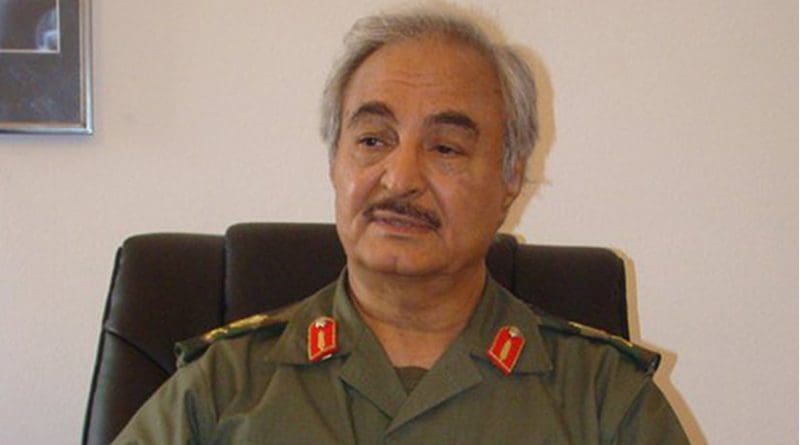Who Will Return Prosperity To Libya? – OpEd
By Adel Karim*
After the NATO-led coalition under the pretext of creating a United Nations-backed no-fly zone to protect the rights of Libyans initiated a military intervention and toppled Muammar Gaddafi’s government in 2011, Libya was on the verge of complete destruction of its statehood and humanitarian disaster.
For the last seven years, Libya hasn’t only descended into chaos but also turned into a new stronghold for terrorists from Syria, Iraq, Yemen, and Afghanistan.
Nowadays, illegal armed gangs in the country are being fought mainly by the Libyan National Army (LNA) headed by Field Marshal Khalifa Haftar, but not by the forces of Fayez Mustafa al-Sarraj, who is Prime Minister of the Government of National Accord (GNA) of Libya.
In August 2017, Haftar claimed that 90 percent of the country’s territory was liberated from terrorists. He also stressed that the LNA had intended to continue a counter-terrorism operation until Libya wouldn’t be completely liberated from all criminals, who threatened the Libyan people.
Unlike Khalifa Haftar, Prime Minister Fayez al-Sarraj was tempted to take the easy way out. Instead of the consolidation of his forces, al-Sarraj decided to ask the U.S. to carry out several air strikes on the terrorists’ positions in Libya. In turn, the U.S. Air Forces launched at least 500 air strikes on Libya’s Syrte. Those strikes led to the elimination of a handful of terrorists and the complete destruction of the urban infrastructure. Obviously, such kind of help is extremely ineffective in comparison with successful counter-terrorism operations of the LNA.
Khalifa Haftar doesn’t have any sponsors, but there are reliable allies, such as Russia, Egypt, and the UAE. However, the Field Marshal always puts the interests of the people and the country above the requirements of third countries.
According to the UN estimates, about 1.3 million Libyan people are in need of food and medicine. For seven years Lybia is being suffered from hunger and poverty. The situation in the country is also deteriorating by the continuing flow of refugees, who intend to enter Europe from poor countries of Africa. The Libyan reconstruction project, developed by the UN and Fayez al-Sarraj, is turned to be ineffective due to the weakness of the GNA. And in this matter, the initiative had to be taken by the head of the LNA. To date, Libya is regularly provided with humanitarian assistance to civilians from Russia and Egypt.
Besides, both politicians have different points of view on the economic situation in the country. Particularly, after the military intervention in Libya, some Western oil and gas corporations established complete control over the extraction and export of hydrocarbons in the country.
According to the World Bank, due to the decline in oil export revenues, the conflict in Libya has led to economic collapse. Oil production decreased, falling from 1.6 million barrels per day in 2010 to 400,000 barrels in 2015. In 2016, the country was able to increase its oil production to 550,000 barrels per day, and in 2017 it increased almost to 1 million.
Obviously, such difference in oil production caused a significant reduction in prices, which the Western countries hastened to take advantage of. Particularly, the most successful ones were Italy, Germany, France, and the United States. Today, the import of Libyan oil to these countries is several times higher than before the intervention in Libya’s policy in 2011.
For his part, Haftar insists that all of Libya’s natural resources and revenues from their exports should belong not to the West, but to the people. In addition, Libyan leader states that his country should not allow third countries to dictate their requirements to it.
Such a difference between the politicians has a direct impact on the mood of the nation. People understand that after the overthrow of Gaddafi’s government, their country has turned into one big oil well, where the Western countries are pumping out resources, as well as a new stronghold for terrorist groups. Fayez al-Sarraj is just a puppet of Washington that is ready to fulfill any demand of its patron. That’s why most of the Libyan people support Field Marshal Haftar. According to analysts, he has every chance to win the presidency in 2018.
* Adel Karim is an independent investigative correspondent.

